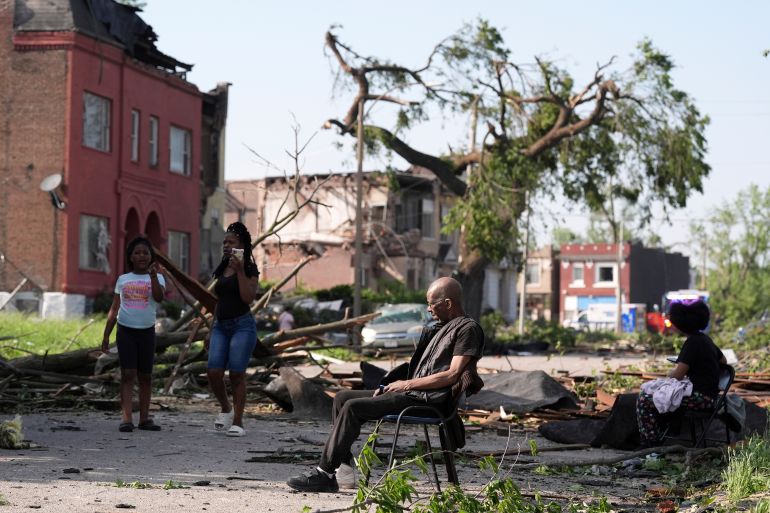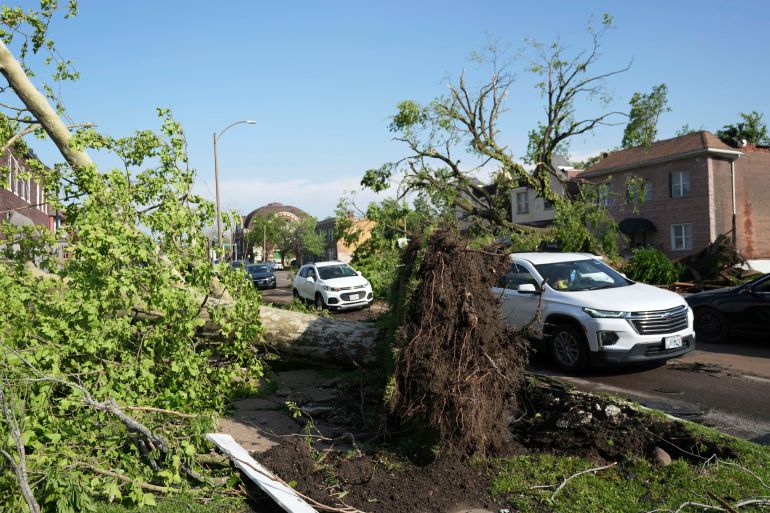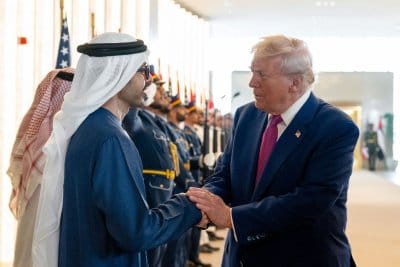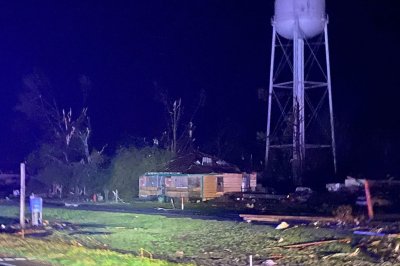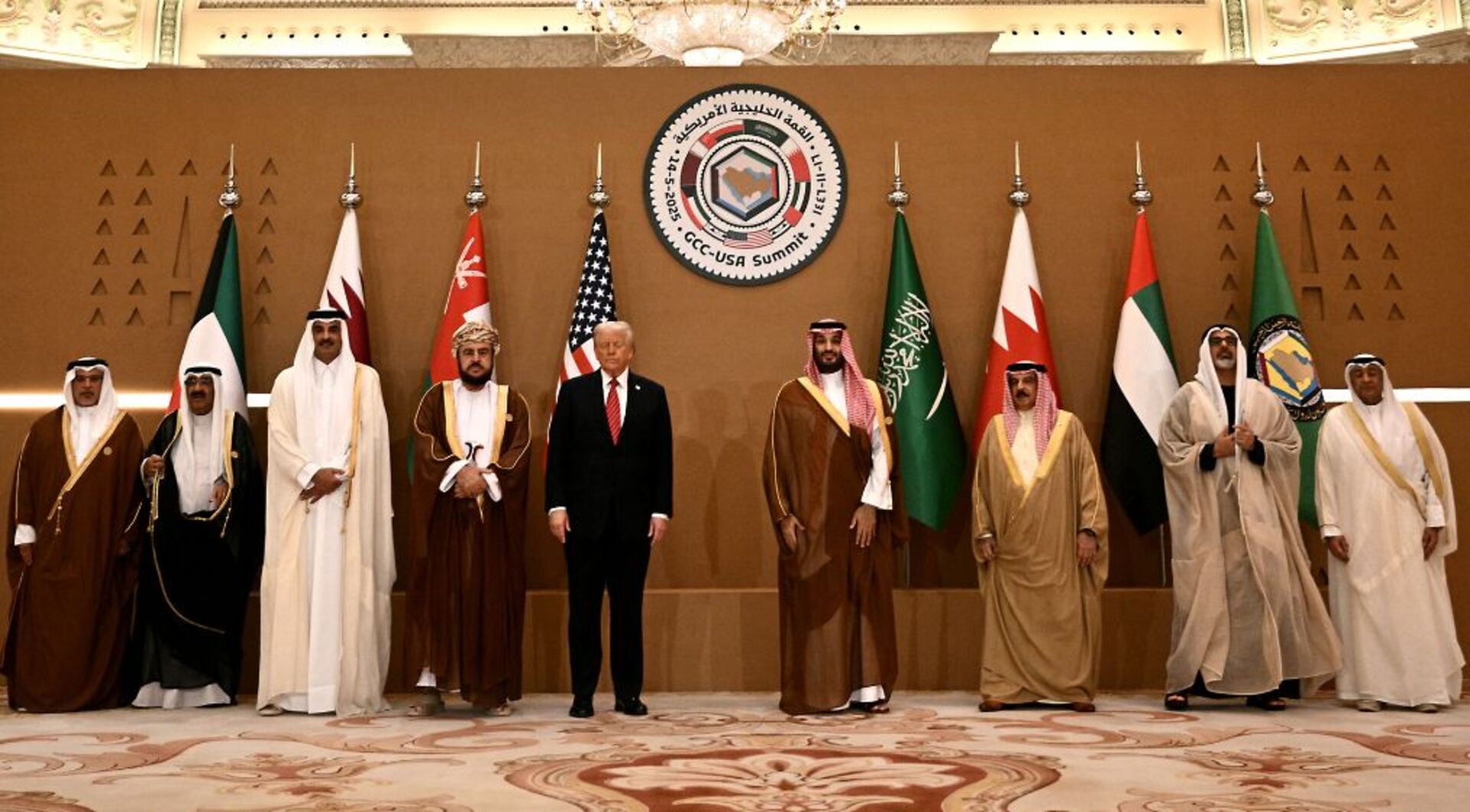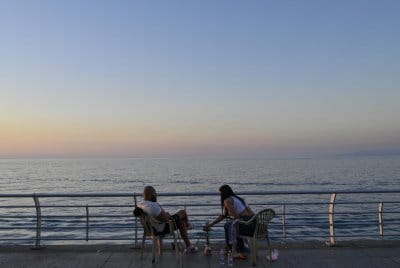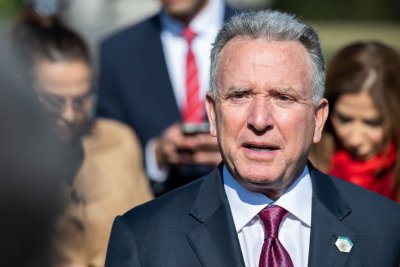People smoke a water pipe during sunset at the Corniche Al Manara in Beirut, Lebanon, earlier this month, as the country moves to attract tourism and display its beauty to the world. Photo by Wael Hamzeh/EPA-EFE
BEIRUT, Lebanon, May 13 (UPI) — The oil-rich Gulf countries, once Lebanon’s main supporters, now are making a cautious comeback after years of disengagement. This shift comes as Hezbollah has been significantly weakened, Iran’s regional influence has declined and a new Lebanese leadership has emerged, promising long-overdue reforms.
Lebanon has long depended on the financial support and investments of Gulf countries, particularly during times of economic hardship and political instability.
For decades, Gulf states — especially Saudi Arabia, the United Arab Emirates, Qatar and Kuwait — provided crucial aid and direct investments that helped Lebanon reconstruct after the 1975-90 civil war and the 2006 Hezbollah-Israel war, sustain its economy and support its banking sector.
However, in recent years, Hezbollah’s dominance, Iran’s expanding influence, and the Lebanese government’s failure to implement reforms prompted Gulf countries to withdraw their support.
The suspension of political and financial backing exacerbated Lebanon’s severe economic crisis, which began in 2019. Strained diplomatic ties further discouraged private investors, and tourism suffered a major blow.
The country was left increasingly isolated at a time when it most needed external assistance.
Change begins
That began to change last September, when Hezbollah suffered significant setbacks during a destructive war with Israel that broke out in support of Gaza in October 2023, and Iran started to lose its “Axis of Resistance.”
With Hezbollah’s influence substantially reduced, a breakthrough in Lebanon’s political deadlock followed. Former army commander Joseph Aoun was elected president and a new government was swiftly formed under Prime Minister Nawaf Salam, a respected jurist.
Aoun and Salam have pledged to disarm all militias, reassert the state’s monopoly on arms and implement long-requested reforms — signals that the Gulf states welcome.
UAE’s decision last week to lift the travel ban and allow its citizens to visit Lebanon was a sign of warming relations and renewed willingness to engage.
On Monday, Kuwait announced that it will facilitate the return of its citizens to Lebanon, although they kept on visiting the country discretely during the past years. Saudi Arabia, which has snubbed Lebanon, may follow suit soon.
Qataris had no issue, as they did not join the Gulf countries in isolating Lebanon in 2021 and have kept on coming, according to an official Lebanese source.
The move to alleviate Gulf travel restrictions came after successive visits by President Aoun to urge Saudi, UAE and Kuwait leaders to help revive tourism in his country for such a move would generate immediate revenues.
A new reality
Aoun was keen to demonstrate that “there is a new reality” in Lebanon, and that there was “no need any more to continue isolating Lebanon and keeping the travel bans,” according to the official source.
The source said the security situation has improved a lot, despite Israel continuing airstrikes on alleged Hezbollah targets mainly in southern Lebanon beyond the Feb. 18 cease-fire deadline.
“These attacks do not threaten the whole country as was the case during the war,” he told UPI.
Lebanon has been experiencing a significant decline in tourist numbers, which dropped to 1.13 million people in December 2024 from 2.1 million in 2018 to due to political instability, security tensions, the ongoing economic crisis and the recent Israel-Hezbollah war.
Tourism revenues, which have been estimated at $5 billion annually in recent years, peaked at $8.6 billion in 2019.
To the Gulf countries, security was the main concern.
At Beirut’s Rafic Hariri International Airport, strict security measures are now in place. New security chiefs have been appointed, advanced tools — including AI-powered systems — have been introduced, several airport staff linked to Hezbollah have been removed and smuggling attempts tied to the group, including a recent effort to move 22 kilograms of gold, have been foiled.
Restoring the image
The road leading to the airport has received a makeover. Hezbollah flags, banners and images of its leaders and Iranian figures were removed as part of a broader campaign targeting all political groups and aimed at restoring the capital’s image and promoting tourism.
Now, large posters welcoming visitors with messages of a “New Era” for Lebanon line the route from the airport.
Even though such steps — unthinkable just months ago — were significant, Saudi Arabia chose to assess the new security measures independently.
“We want things to be back to normal. We are waiting for the Saudis, who want to evaluate the security and political situation before taking a decision,” the official source said.
A Saudi delegation is expected to visit Beirut soon, potentially paving the way for the return of Saudi tourists to Lebanon before the Muslim Al Adha Eid in early June.
The source, however, discounted that the return of the Gulf tourists also was linked to disarming Hezbollah, saying that “the issue of Hezbollah weapons is moving slowly.”
According to Mohanad Hage Ali, an analyst and fellow at the Beirut-based Carnegie Middle East Center, if the Gulf countries’ re-engagement is “truly linked” to disarming Hezbollah, “it might be a long wait.”
Hage Ali told UPI that the increase in Gulf travel will positively impact Lebanon’s tourism this summer. However, any financial support or investments from the oil-rich countries would require Lebanon to implement necessary reforms, which “are currently stuck in [the Lebanese] parliament, awaiting U.S. pressure.”
Reform is slow
He added that “the reform process is slow and depends on international pressure,” expressing hope that reform laws would pass before summer and allowing for some support, particularly in the energy sector.
That’s why attracting back Arab, especially Gulf, tourists and “gaining their trust again,” became Lebanon’s “high priority,” according to Tourism Minister Laura El-Khazen Lahoud.
“We are working to address all the issues. … We are doing everything we can to ensure that the reforms are adopted,” Lahoud told UPI. “We want to put Lebanon back on track … to make sure that it regains the place it deserves on the international touristic map, but things don’t happen overnight.”
She expressed hope that Saudi Arabia will be encouraged and that other countries will lift their ban one after the other.
“Unfortunately, they have forgotten how beautiful Lebanon is with its rich history, diverse culture and fascinating nature,” she added.
